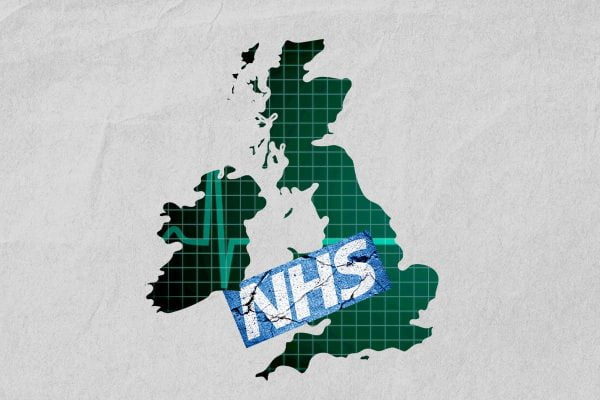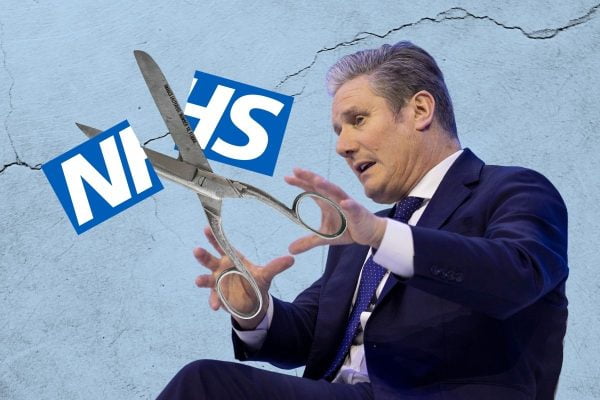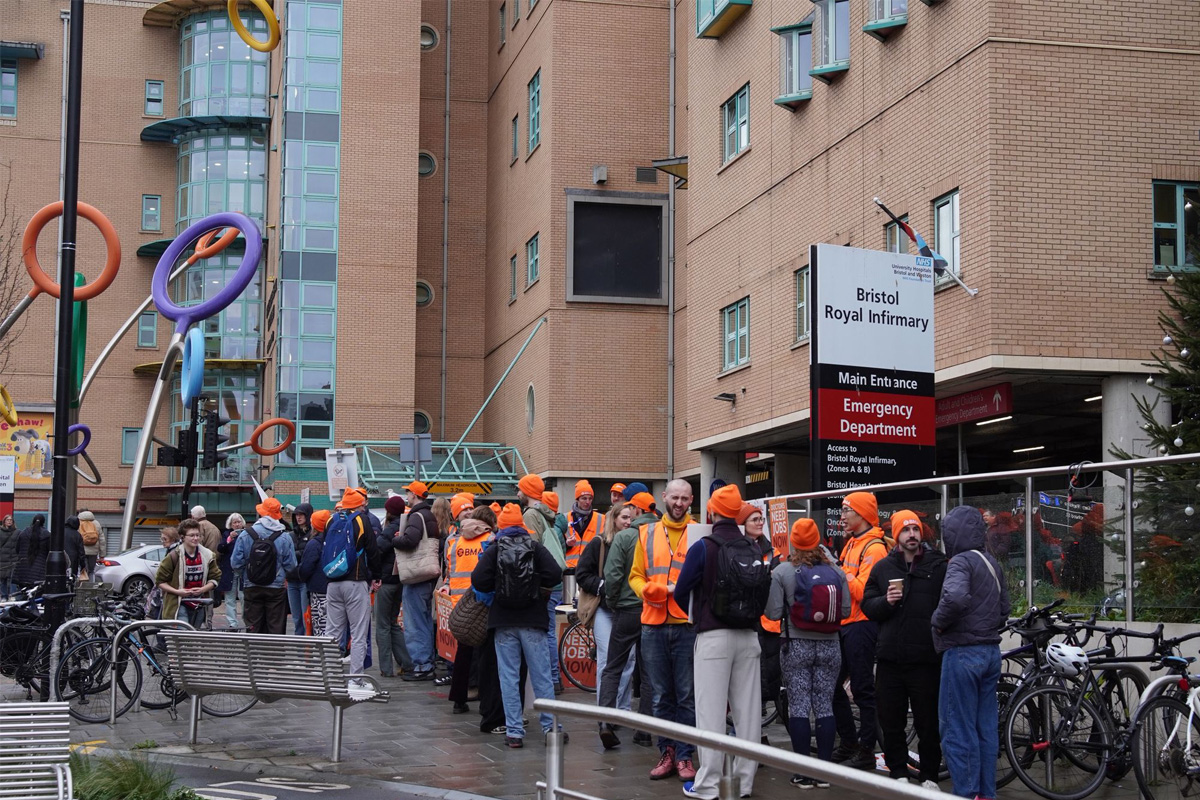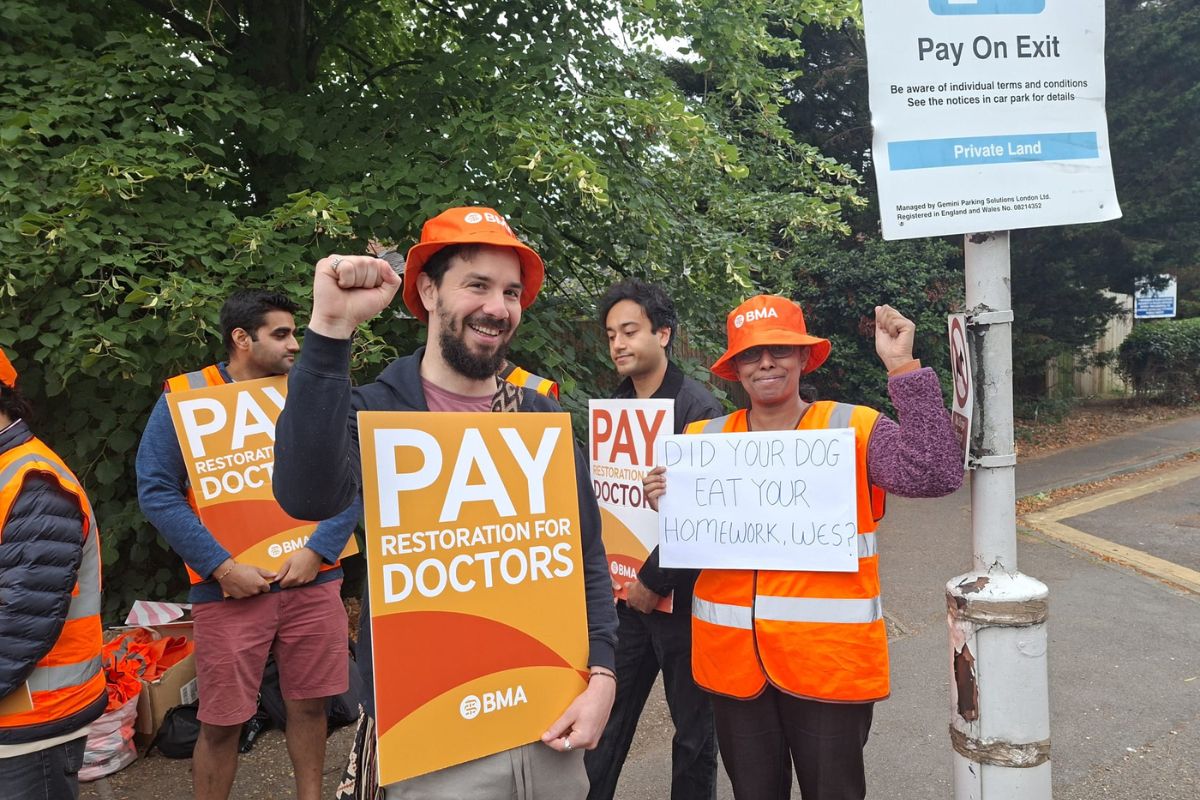Labour’s Blairite health secretary Wes Streeting is planning to axe 18,000 administrative jobs in the NHS over the next two years.
This is part of the abolition of NHS England – the body which oversees the day-to-day running of the NHS – which is set to be merged into the Department of Health and Social Care. This is all being done, according to Labour, in the name of ‘efficiency’ (read: penny pinching).
Health workers are rightly critical of the bloated NHS bureaucracy, but there is little to no faith in Streeting’s cynical actions.
Far from it. Frontline staff have told The Communist that they are seriously worried that these reckless cuts will affect crucial roles, like dynamic support workers who manage and track discharged patients’ care plans.
Streeting is no friend of the NHS. He has repeatedly shown disdain for the healthcare workers and patients, through real-terms pay cuts, demonising doctors in the bosses’ media, and putting himself at the service of private companies like Palantir who want to carve up the NHS.
NHS under attack

Workers within NHS England are in a very precarious position, not knowing if they’ll be given the axe or, if they keep their job, whether they will now have to do the work of two former colleagues.
What is certain is that anyone ‘lucky’ enough to dodge the axe won’t see any increase in pay for their additional workload.
This is particularly the case with dynamic support workers, who work hard to ensure that Health and Social Care services work together, that aftercare packages are robust, and that funding agreements between different services link up.
These workers ensure that vulnerable adults and children are safely returned to our communities. Streeting’s attempt to ‘cut the fat’ will lead to overstretched services rushing patients out of hospital, leaving them without adequate support.
What’s more, the NHS Confederation (representing healthcare managers) warns that job cuts will directly lengthen waiting lists and throw the NHS backwards in its attempt to meet rising financial needs.
State bureaucracy vs workers’ democracy
The government has portrayed NHS England workers as out-of-touch bureaucrats, whose existence is an unnecessary burden on NHS funding.
“We’re now pushing down on the accelerator and slashing unnecessary bureaucracy, to reinvest the savings in front-line care,” Streeting cynically claims. He has defended his actions by saying that he’s “not running a job creation scheme”.
But the greatest bureaucrat-in-chief is none other than Wes Streeting. Slimy Wes has never held the hand of a dying patient in an ambulance queue, never watched a care patient struggle with cuts to local services, and never had to patch together shrinking funding pots to keep services going.
What’s more, tackling the NHS bureaucracy is not considered the main priority for the health and social care workers we work with. Pay cuts, understaffing, higher workloads are far more important issues to tackle.

Streeting has pointed out that every £1bn in savings will provide thousands more hip operations. But this is a case of robbing Peter to pay Paul: what is the point of more hip surgeries if the management of everything from funding to actual care is undermined in the community?
Fundamentally, the best way to fight the NHS bureaucracy is not through top-down diktats by penpushers in Westminster.
It’s to clear out all of the private companies, bring all the outsourced services back in-house, and consolidate all of the disconnected local trusts (which are encouraged to act like competing businesses) into a single national body, under the democratic control of NHS staff.
From discharge managers to dieticians, carers to clinicians, we know how the NHS is run. Committees of elected workers’ reps, on an average workers’ salary, subject to recall, have far more knowhow and experience on how to streamline services than a politician with a net -9% popularity.
Starmer’s Labour has already shown where its interests lie: with the private sector parasites, and the billionaire investors demanding austerity cuts, rather than the clinical and admin workers who actually run the NHS. Using the cover of ‘cutting bureaucracy’ to ravage the NHS won’t fool workers, nor our patients.
There’s plenty of money in the UK to fund a world-class health service. The problem is that it’s sitting in the bank accounts of the super-rich. It’s high time we seized that wealth, and invested it in the health and wellbeing of ordinary people.
Doctors on strike: Down the scalpel to stop the cuts!
Revolutionary Communist Party activists recently visited their local BMA picket lines.
At St. Thomas’ Hospital in London, a paediatric trainee told us about the anarchy in his workplace:
“Tens of thousands of doctors are currently without work – for an NHS that’s never been more understaffed… Day-in, day-out, there are constantly short rotas; gaps with sickness that aren’t filled!”
Some of his friends are currently unemployed due to extreme competition for training, with trainees to placement ratios of 150:1.
Those in work get moved across the country every couple years, and opportunities to become a GP are decreasing. One striker in Birmingham said, “I love helping my patients, but if I’d known what conditions were like when studying, I would’ve done something else”.
The bosses’ propagandists say that under socialism “no one would work because they’d receive what they want”. Under capitalism, doctors do everything possible to help people, but are pushed from the profession due to bad conditions!
Most strikers were therefore very militant, wanting the strike to be indefinite, and feeling the BMA leadership was lagging behind. The doctors at the same time were keen to discuss broader political questions from the ‘Block Everything!’ strike wave to the US imperialist aggression in Latin America.
While Wes Streeting calls these strikes “reckless”, doctors understand what’s really reckless is the NHS being crushed under the heel of capitalism. They are on the frontlines of this crisis.
Katya Turchin, Birmingham, and Bach Nguyen, Elephant and Castle






